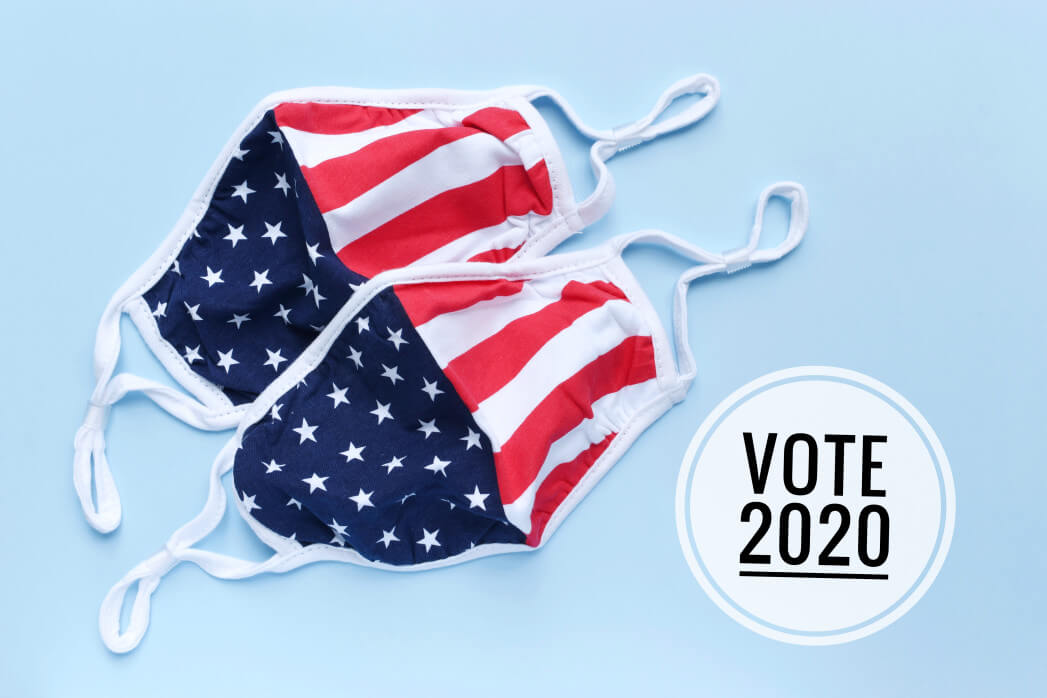From Facebook to Twitter to Instagram and new beginnings for one app – we’ve got you covered on how this year’s election has changed social media.
An ever-evolving space, it’s not surprising that a Presidential Election during a global pandemic would shape the social media scape. A lot has happened, with concerns over the spread of misinformation, and we’re here to fill you in.
Twitter – some left bitter over tweet censorship
If you’ve been keeping up with our blogs, you know that Twitter has become a very hot topic in this conversation. Over the summer, Twitter began flagging content, and putting warning labels on content that the platform deems politically inaccurate, dangerous, inciting violence, etc.
Twitter’s attempt to censor content got very intense during the election.
According to Twitter:
So far approximately 300,000 Tweets have been labeled under their Civic Integrity Policy for content that is disputed and potentially misleading.
456 of these Tweets were covered by a warning message, and had its engagement options limited.
Leading up to the election, Twitter announced in October that they would remove the straight “retweet” button for US users to help prevent the spread of misinformation.
Instagram & Facebook
Remember the 2016 Presidential Election? Remember how Facebook was blamed for destroying America’s democracy? No? Let us remind you – after the dust settled it became clear that “fake” accounts in Russia and other parts of the world were essentially created for the sole purpose of spreading misinformation – thus influencing voters and influencing the election by promoting false facts, and emotionally charged content that angered individuals on both the Right and Left.
Fast forward to 2020, which has brought with it a lot of stress; murder hornets, global wildfires, the COVID-19 pandemic, and of course the death of George Floyd which sparked the nation-wide Black Lives Matter movement.
Compared to Twitter’s efforts to stop the spread of dangerous content and misinformation, Facebook has been seriously lacking. For specifics you can read our previous blog covering the topic. In a nutshell – from the eyes of both employees and Facebook users, Zuckerberg simply didn’t do enough to stop the onslaught of pure crap moving throughout the platform.
Well – he learned his lesson… when it comes to Facebook Ads at least. Advertisers on the platform who fall into the category of ‘Social issues, elections, or politics’ are blacklisted. Makes sense right? Well there are some unintended consequences – ANY account related to the government falls in to this list. For example, DMVs, libraries, and other organizations across the country are unable to run Ads right now – and despite the election basically being over – Facebook hasn’t announced when they will resume the Ads.
Instagram has also limited its engagement tools by limiting the search of hashtags in its Discovery feature. Whether it’s political or not – if you threw up any hashtags on your content around the time of the election – no one saw it. #DenverFoodie? Sorry, your hashtag did virtually nothing to help users find your content. If you notice a drastic dip in engagement, it’s safe to assume this is why.
Introducing Parler…
There are just two rules on the “free-speech” social network, Parler.
One: nothing criminal.
Two: no spam.
In response to so many of the popular social media platforms censoring political content by flagging posts, or disabling engagement tools, Parler was born with this idea in mind – post “without fear of being ‘deplatformed’ for your views.”
Marketing itself as an alternative antidote to the big fish in the pond like Facebook and Twitter, Parler is attracting a lot of attention from social media users looking to connect with like-minded individuals. With over 8 million users so far, Parler has remained on ‘Top Free App’ lists the past few weeks on the Apple and Google app stores. Here, accounts that have been banned and blocked on other platforms can be reborn. So far the App is attracting users who fall under the far Right category, but it will be interesting to see how this infant platform develops.
What does it all mean?
Does anyone really know? Like so many things… art, cinema, etc. social media is a reflection of society… or wait, is society a reflection of social media?
Before we go crazy philosophizing – we at Hey Mr. want to remind you to take a deep breath. It’s been a crazy year and social media is such a new tool, we humans are still just figuring it all out. So if this is all too much, go ahead – turn your phone off and take a notification-break, you need it.








